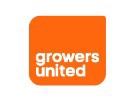Which is preferable: fresh vegetables from intensive greenhouse horticulture or fresh vegetables from extensive organic horticulture? "Why always choose two extremes?" rightly asks Perry Dekkers, Commercial Director at Growers United. "Such a polarizing position is counterproductive. It is precisely because of the existence of both options that together we can fill European shelves year-round with sustainably grown, healthy vegetables."
"It's not for nothing that Dutch greenhouse growers are Europe's number one when it comes to producing sustainable, fresh vegetables. Our vegetables are mainly grown in greenhouses because production can be better regulated there while using less (agricultural) land. In fact, this growing method in greenhouses can almost be called organic already, the biggest difference being that in greenhouses, it is grown on gutters, and organic prescribes that it must be grown in the ground."
Instead of polarizing, instead emphasize the security of supply
"Often intensive greenhouse horticulture and extensive organic horticulture are presented as two extremes of the spectrum. Where the discussion focuses on which of these two would be the best method of cultivation," Perry responds. "But such an approach is not beneficial for anyone; not for horticulture, not for organic horticulture, and certainly not for the European consumer. Much more important is the focus on the availability and security of supply of our healthy product. Because it is precisely together that we can fill the shelves year-round with sustainably grown, healthy vegetables. Of course, this is preaching to the converted for the most part, but by perfecting the production process further and further, Dutch horticulture growers are contributing greatly to food security for European consumers. And that in a sustainable way with the smallest possible carbon footprint."
"Ever since the mid-nineteenth century, the sunshine hours and optimal conditions in the west of the Netherlands have been used for horticulture. In order to achieve high yields on the expensive (agricultural) land, our growers use knowledge that is passed on and honed from generation to generation. This knowledge of biology and technology helps them further optimize and make the production of fresh vegetables more sustainable."
Dutch horticulture example for sustainable future
This has also not escaped internationally acclaimed documentary filmmaker and biologist Sir David Attenborough. In his documentary series A Life On Our Planet, he cites Dutch horticulture as an example of a sustainable future, in which a lot of food can still be produced in a highly efficient manner with little impact on the environment.
"The Netherlands is one of the most densely populated countries in the world. It is dotted with relatively small family farms focused on horticulture, with hardly any room for economies of scale. That's why Dutch growers have become experts at getting the most out of every hectare," Sir David Attenborough says. "This is increasingly done in a sustainable way. With each generation, yields are increased tenfold while at the same time using less water, energy and no chemical pesticides. Less CO2 is also emitted. Despite its modest size, the Netherlands is the world's second-largest exporter of food. It is absolutely possible, by using both low-tech and high-tech solutions, to produce much more food on much less (agricultural) land."
Innovative production process guarantees high-quality vegetables
How do Dutch growers manage to produce so much food on relatively little (agricultural) land? What makes our horticulture so successful? "Because cultivation takes place within a relatively closed system, we can optimally control the conditions," Perry explains. "Think about regulating the indoor climate with as much renewable energy as possible, reusing water and nutrients, and using natural biological crop protection in the form of natural enemies. This allows us to continuously guarantee the supply of sustainably grown, healthy vegetables, always maintaining the high quality of the products.
"By making a daily commitment and honing their production process ever more sustainably, Growers United growers at some 70 growing locations ensure that European consumers have access to fresh and healthy tomatoes, peppers, cucumbers, and eggplants at a fair price."
For more information:
Growers United 
www.growersunited.nl
